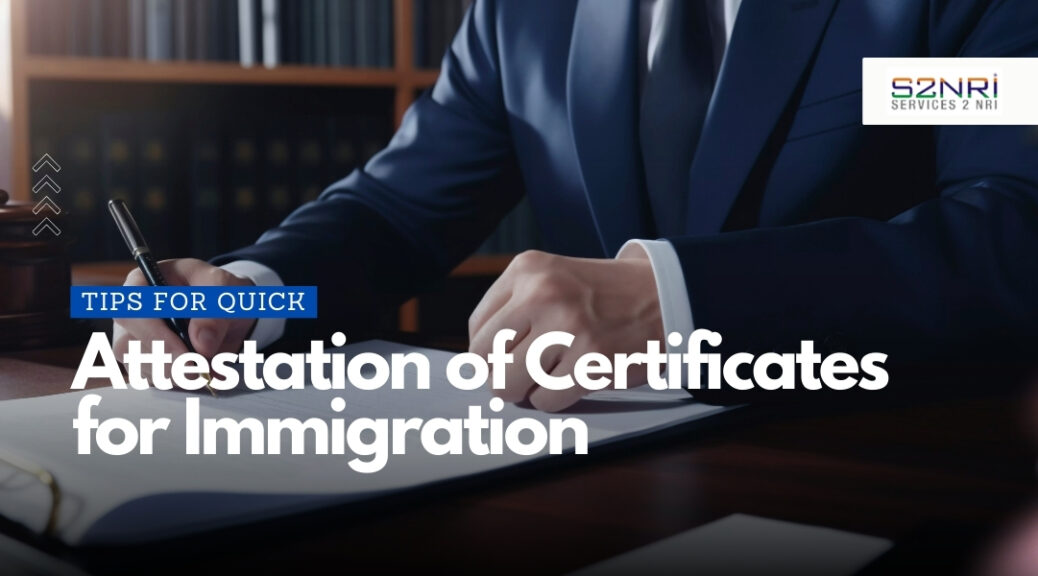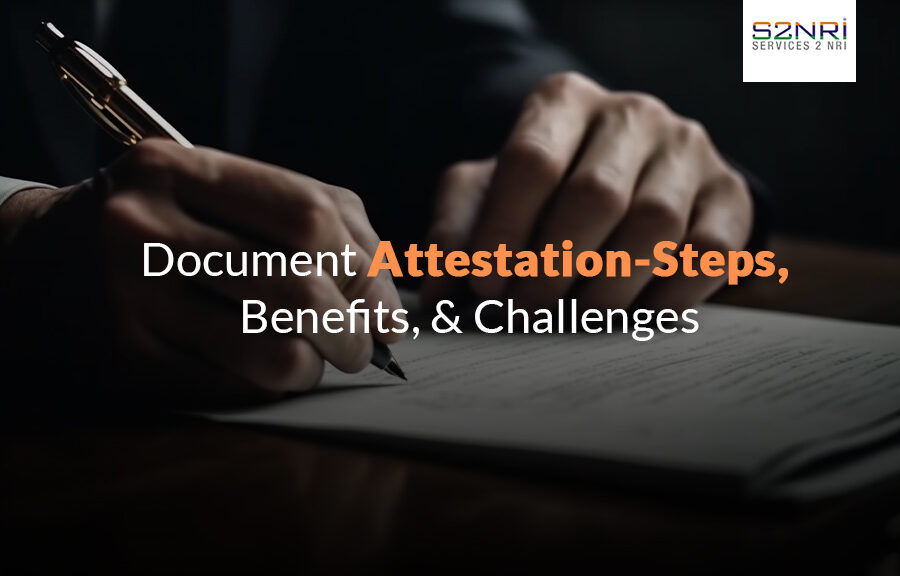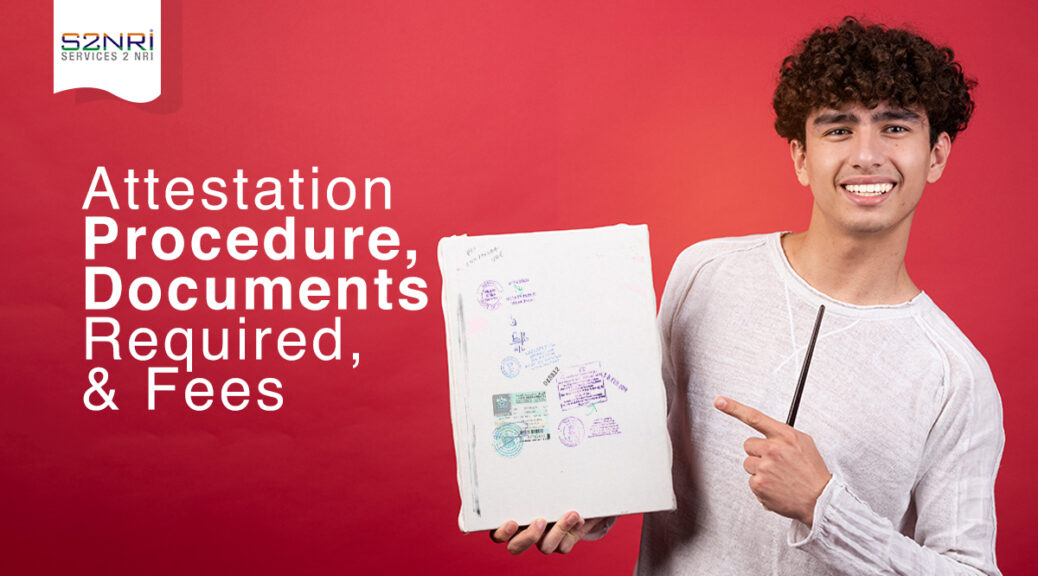
Tips for Quick Attestation of Certificates for Immigration
Are you risking delays and rejections to get your certificates attested?
Certainly, it’s a big challenge to handle the red tape in the system. There are thousands of people, including students, visitors, business owners, and employees, who are likely to visit abroad or emigrate. No matter what the reason is to go abroad, the immigration process is incomplete without obtaining attested certificates.
Understanding the Attestation of a Certificate
The word attestation refers to legalizing documents for acceptance by national and international government agencies or authorities. It’s just a stamp on the paper, which ensures that the paper is authentic and valid. Sometimes, it is also recognized as apostille services (valid for the Hague Convention member countries’ visits). Let’s say a student is likely to study in the USA. Certainly, he has to present educational degrees, transcripts, or any other academic document with the stamp of the notary and the HRD ministry of the Home and Union governments. Then only his degree would be considered original and valid. Likewise, professional qualifications and personal identification papers are attested for employment and other purposes.
Attestation of documents is not just a stamp, but a verified piece of paper. The request for legalization initiates the process of verification by the designated authority. Once it is proven that all supporting documents are original, the competent authority legalizes the certificate.
This blog will guide you on how to get any document attested and describe all the steps to make it easier for you.
Types of Documents Requiring Attestation
A certificate, in this case, can be related to a business, academics, profession, or employment. The need for certificate attestation may arise according to the reason for the foreign visit. So, these are the categories of certificates that should be verified and stamped.
- Educational Certificates
The very first category is related to academic degrees, diplomas, and transcripts (consolidated marksheets) from a recognized educational institution. These papers are helpful in figuring out the purpose of an individual’s visit.
2.Professional Certificates
The next category is related to professional qualifications, licenses, or memberships. They also require a stamp from the designated authority before immigration. This is for individuals who are seeking employment or employed in a new country.
3.Personal identification papers
This category of document is concerned with people who are non-residents or are going to be non-residents. They must have attested birth certificates, marriage certificates, and police clearance certificates, which verify the originality of these identification records.
Steps to Obtain Attested Certificates
Step 1. Verify requirements
To begin with, you should research the specific attestation requirements of the country where you are going to visit or emigrate. Because every country has unique requirements and procedures, So, your aim should be to discover attestation requirements from specific authorities.
Step 2. Obtain Original Documents
Now that you have researched and discovered everything, collect all the original copies of the documents to be attested. Sometimes, designated authorities do not accept scanned copies or photocopies of the original papers. So, keep your originals ready.
Step 3. Notarization
The next step is to notify them. This is a type of verification that a licensed notary public does. He certifies the validity and authenticity of a birth certificate, marriage proof, transcript, etc. A notarized document can be recognized through the seal or stamp of the designated notary public.
Step 4. Home Country Attestation
This step is associated with the stamp and verification by the home authorities of the state, which can be government departments, educational boards, or professional regulatory bodies. It completely depends on the type of document.
Step 5. State’s Home Attestation
For this step, the state’s home ministry would be competent. The person can visit the ministry for the attestation or hire a consultant to provide support.
Step 6. Legalization
The Ministry of External Affairs (MEA) stamps the documents. But an individual cannot raise the request personally. A few outsourcing agencies or consultants are authorized to accept requests and collect documents for legalization. Once requested, the documents are forwarded to the embassy of the destination country. This step ensures that the foreign government recognizes it.
Step 7. Translation (if applicable)
If your documents are in a local language and that is not the official language of the destination country, you may have to provide a transcription. It is a translated copy of your paper. But there is a strict protocol associated with it, which is to get it from a registered or qualified translator.
Step 8: Submission
The next one is related to submission. As your documents are all stamped, submit them along with the immigration form so that you can easily navigate the destination country. Sometimes, the designated officer may ask for additional documents and their verification. So, prepare yourself for it also.
Step 9. Follow-Up
Now that you have submitted, closely monitor the status of your application. Any kind of delay or discrepancy in processing can impact your immigration process.
Step 10. Retain copies
Once received, you should secure those attested documents for backups and future reference.
As a piece of advice, contacting a consultant like Services2NRI or a legal advisor can be helpful. For any query, you can raise a request. Or, you can send an email.
Conclusion
The attestation process is typically required for employment, admission, or immigration. It requires designated authorities’s support or assistance, which can come from consultants or legal matter experts. You can discuss your individual requirements and then understand the entire process so that an informed decision can be made. Seek suggestions from them and ensure that you follow the prescribed format throughout the attestation process.


 this is link
this is link